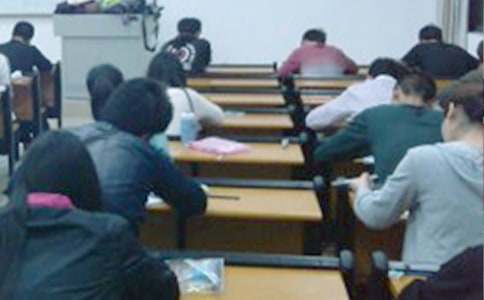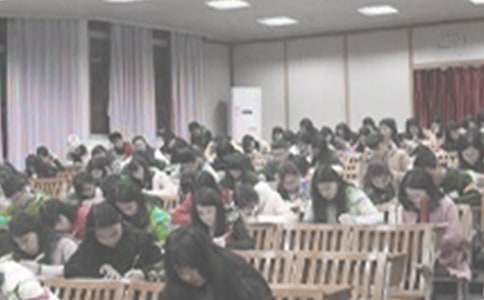2017年公共英語五級考試閱讀沖關訓練題及答案
Life is not all roses.以下是小編為大家搜索整理的2017年公共英語五級考試閱讀沖關訓練題及答案,希望能給大家帶來幫助!更多精彩內容請及時關注我們應屆畢業生考試網!

On the 36th day after they had voted, Americans finally learned Wednesday who would be their next president: Governor George W. Bush of Texas.
Vice President Al Gore, his last realistic avenue for legal challenge closed by a U. S. Supreme Court decision late Tuesday, planned to end the contest formally in a televised evening speech of perhaps 10 minutes, advisers said.
They said that Senator Joseph Lieberman, his vice presidential running mate, would first make brief comments. The men would speak from a ceremonial chamber of the Old Executive office Building, to the west of the White House.
The dozens of political workers and lawyers who had helped lead Mr. Gore’s unprecedented fight to claw a come-from-behind electoral victory in the pivotal state of Florida were thanked Wednesday and asked to stand down.
“The vice president has directed the recount committee to suspend activities,” William Daley, the Gore campaign chairman, said in a written statement.
Mr. Gore authorized that statement after meeting with his wife, Tipper, and with top advisers including Mr. Daley.
He was expected to telephone Mr. Bush during the day. The Bush campaign kept a low profile and moved gingerly, as if to leave space for Mr. Gore to contemplate his next steps.
Yet, at the end of a trying and tumultuous process that had focused world attention on sleepless vote counters across Florida, and on courtrooms form Miami to Tallahassee to Atlanta to Washington the Texas governor was set to become the 43d U. S. president.
The news of Mr. Gore’s plans followed the longest and most rancorous dispute over a U. S. presidential election in more than a century, one certain to leave scars in a badly divided country.
It was a bitter ending for Mr. Gore, who had outpolled Mr. Bush nationwide by some 300000 votes, but, without Florida, fell short in the Electoral College by 271votes to 267-the narrowest Electoral College victory since the turbulent election of 1876.
Mr. Gore was said to be distressed by what he and many Democratic activists felt was a partisan decision from the nation’s highest court.
The 5-to -4 decision of the Supreme Court held, in essence, that while a vote recount in Florida could be conducted in legal and constitutional fashion, as Mr. Gore had sought, this could not be done by the Dec. 12 deadline for states to select their presidential electors.
James Baker 3rd, the former secretary of state who represented Mr. Bush in the Florida dispute, issued a short statement after the U. S. high court ruling, saying that the governor was “very pleased and gratified.”
Mr. Bush was planning a nationwide speech aimed at trying to begin to heal the country’s deep, aching and varied divisions. He then was expected to meet with congressional leaders, including Democrats. Dick Cheney, Mr. Bush’s ruing mate, was meeting with congressmen Wednesday in Washington.
When Mr. Bush, who is 54, is sworn into office on Jan.20, he will be only the second son of a president to follow his father to the White House, after John Adams and John Quincy Adams in the early 19th century.
Mr. Gore, in his speech, was expected to thank his supporters, defend his hive-week battle as an effort to ensure, as a matter of principle, that every vote be counted, and call for the nation to join behind the new president. He was described by an aide as “resolved and resigned.”
While some constitutional experts had said they believed states could present electors as late as Dec. 18, the U. S. high court made clear that it saw no such leeway.
The U.S. high court sent back “for revision” to the Florida court its order allowing recounts but made clear that for all practical purposes the election was over.
In its unsigned main opinion, the court declared, “The recount process, in its features here described, is inconsistent with the minimum procedures necessary to protect the fundamental right of each voter.”
That decision, by a court fractured along philosophical lines, left one liberal justice charging that the high court’s proceedings bore a political taint.
Justice John Paul Stevens wrote in an angry dissent:” Although we may never know with complete certainty the identity of the winner of this year’s presidential election, the identity of the loser is perfectly clear. It is the nation’s confidence in the judge as an impartial guardian of the law.”
But at the end of five seemingly endless weeks, during which the physical, legal and constitutional machines of the U. S. election were pressed and sorely tested in ways unseen in more than a century, the system finally produced a result, and one most Americans appeared to be willing at lease provisionally to support.
The Bush team welcomed the news with an outward show of restraint and aplomb. The governor’s hopes had risen and fallen so many times since Election night, and the legal warriors of each side suffered through so many dramatic reversals, that there was little energy left for celebration.
1. The main idea of this passage is
[A]. Bush’s victory in presidential election bore a political taint.
[B]. The process of the American presidential election.
[C]. The Supreme Court plays a very important part in the presidential election.
[D]. Gore is distressed.
2. What does the sentence “as if to leave space for Mr. Gore to contemplate his next step” mean
[A]. Bush hopes Gore to join his administration.
[B]. Bush hopes Gore to concede defeat and to support him.
[C]. Bush hopes Gore to congraduate him.
[D]. Bush hopes Gore go on fighting with him.
3. Why couldn’t Mr. Gore win the presidential election after he outpolled Mr. Bush in the popular vote? Because
[A]. the American president is decided by the supreme court’s decision.
[B]. people can’t directly elect their president.
[C]. the American president is elected by a slate of presidential electors.
[D]. the people of each state support Mr. Bush.
4. What was the result of the 5-4 decision of the supreme court?
[A]. It was in fact for the vote recount.
[B]. It had nothing to do with the presidential election.
[C]. It decided the fate of the winner.
[D]. It was in essence against the vote recount.
5. What did the “turbulent election of 1876” imply?
[A]. The process of presidential election of 2000 was the same as that.
[B]. There were great similarities between the two presidential elections (2000 and 1876).
[C]. It was compared to presidential election of 2000.
[D]. It was given an example.
Vocabulary
1. avenue 通向成功/獲取成功的途徑/手段
2. running mate 競選伙伴,3. 如作為總統的競選伙伴,4. 獲勝后為副總統
5. pivotal 重要的,6. 樞紐的
7. gingerly=carefully 小心翼翼地
8. tumultuous 吵鬧的,9. 騷動的,10. 激動的.
11. rancorous 充滿仇恨的
12. elector 總統選舉團成員
13. elector college 美國選舉總統的選舉團
14. leeway 風壓差,15. 余地
16. for all practical purpose 事實上,
【2017年公共英語五級考試閱讀沖關訓練題及答案】相關文章:
全國公共英語一級考試沖關訓練題及答案08-29
2017年公共英語四級考試沖關訓練題及答案08-23
歷年公共英語五級訓練題閱讀填空題及答案05-23
托福考試閱讀真題訓練及答案05-10
公共英語五級考試詞匯沖刺訓練題及答案06-20
最新公共英語五級考試備考訓練題及答案11-11
公共英語三級閱讀理解突擊訓練題及答案06-13
2017公共英語pets四級沖關訓練題06-20
學位英語考試閱讀基礎訓練題及答案08-19
这里有更多你想看的|
|
- 上一篇:學位英語考試閱讀基礎訓練題及答案
- 下一篇:返回列表






